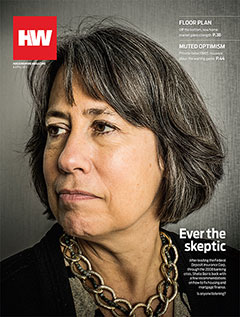The $9.3 billion foreclosure agreement between 13 mortgage servicers and two government agencies regulating them was memorialized recently, setting into motion a process that will result in up to 4.2 million consumers nationwide receiving checks anywhere from hundreds of dollars up to $125,000 in the next few months.
This agreement, which displaces the Independent Foreclosure Review program, provides more evidence that both the mortgage servicing industry and the government entities overseeing that industry are willing to reward bad behavior on the part of borrowers for the sake of political expediency and cost savings.
The foreclosure review program was originally announced by the Office of the Comptroller of the Currency and the Federal Reserve Board in April 2011 and called for individual reviews of foreclosure actions between 2009 and 2010 for possible abuse on the part of mortgage servicers.
That program came under scrutiny in recent months for spending truckloads of cash on independent consultants with no money going to borrowers who were victims of improper foreclosure procedures.
The task of implementing the IFR “proved to be much more complicated than anyone anticipated,” said Comptroller of the Currency Thomas Curry at a recent conference.
“The processes established by the consultants to complete the reviews were very thorough and in some cases involved thousands of checkpoints, which reflected the extraordinary complex laws and rules involved in mortgage servicing and foreclosure processing.
“While servicers had expended nearly $2 billion on the consultants’ review through November 2012, we were still not ready to compensate the first buyer.”
In addition to the $2 billion spent on consultants was $35 million spent on a campaign to raise awareness about the review program. A spokesman for the OCC said in a phone interview that 507,000 borrowers requested foreclosure reviews, out of the potential universe of 4.2 million homeowners who were in any stage of foreclosure sometime in 2009 or 2010.
And because the 13 lenders involved here are some of the nation’s largest, the 4.2 million represents the majority of foreclosure activity that occurred in 2009 and 2010. According to RealtyTrac data, there were a total 5.7 million homes with a foreclosure filing during the two-year period.
According to an OCC spokesman, the review program was discontinued for most lenders originally involved because they were “taking too long
and borrowers were not being compensated in a timely manner.”
GMAC Mortgage, Everbank and OneWest are still moving forward with the independent foreclosure reviews.
Certainly a program that has been in effect for nearly two years and burned through more than $2 billion — without helping a single person it was designed to help — cannot be deemed a success. But simply throwing money at all 4.2 million folks who happened to be in foreclosure with certain lenders during the two-year period in question isn’t a better solution.
This new settlement, along with the national mortgage settlement filed in March 2012, feed the mentality that any foreclosure, no matter how fair, is inherently wrong.
But that mentality is shortsighted because without foreclosure as a possible recourse, the system of financing home purchases as we know it would not be possible.
Additionally, these settlements compensate those who were justly foreclosed alongside those unjustly foreclosed, in effect rewarding victims and wrongdoers equally. It’s akin to splitting lottery winnings evenly between those who have a legitimate winning ticket and those who jotted down the winning numbers after those numbers were already announced.
But as long as the big banks have to pay and feel some pain, does it really matter who gets the money?
Certainly if those big banks really are as evil as some say, they’d rather spend less money on those who don’t deserve it than more money on those who do.
And maybe while we’re cathartically shaking down the big banks we should have them dole out some of their billions to struggling borrowers who faithfully continued to make their payments even through the worst of the housing crisis.





